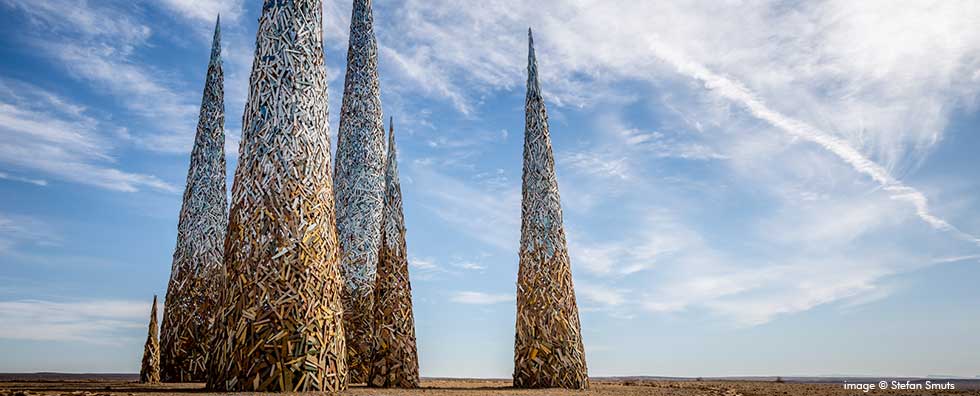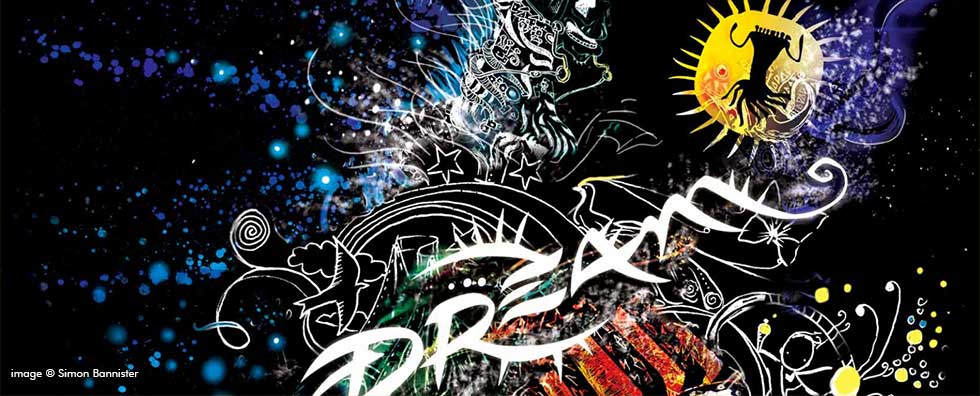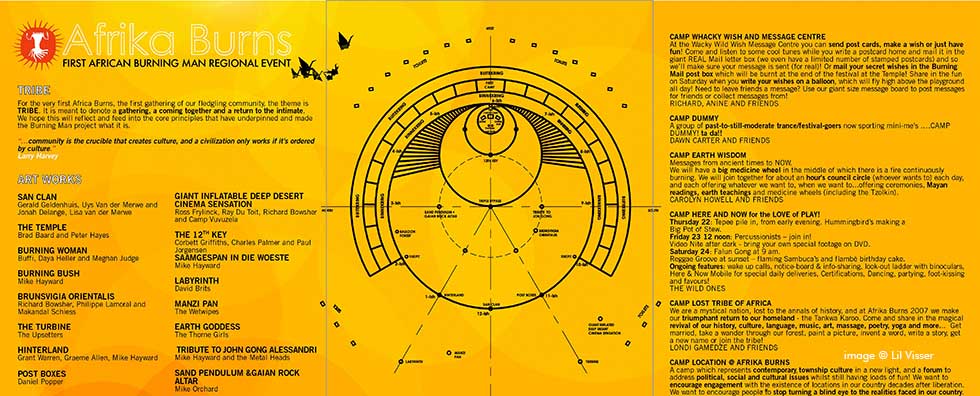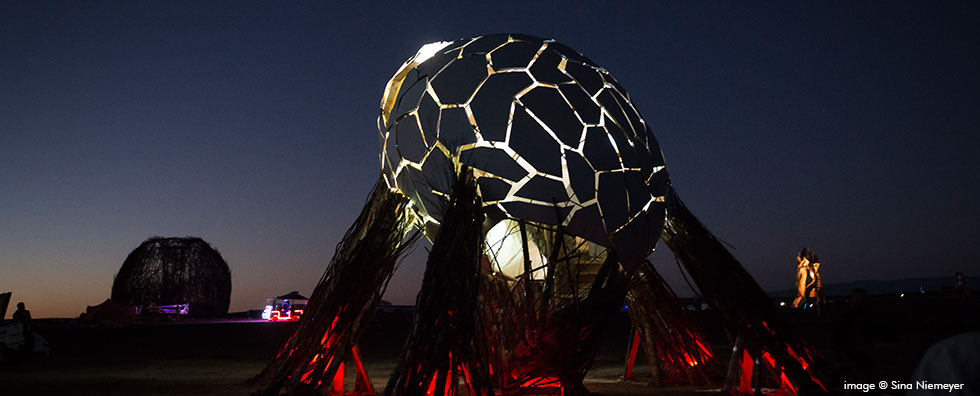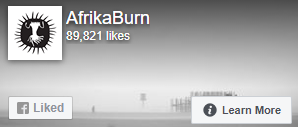Health & Safety
Being prepared as much as possible will make the difference between just surviving, or enjoying your time in Tankwa Town – which is why we have a Survival Guide. The list below provides some general suggestions regarding health & safety in Tankwa Town. For more detailed info, always read our Survival Guide.
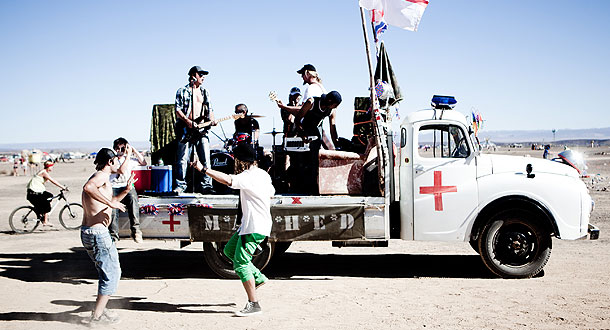
(photo by Jonx Pillemer)
DRIVING TO AND FROM THE EVENT
- All the normal rules of road safety apply.
- Travelling in convoy is strongly recommended on the R355 (the road leading to our event site).
- Drive up during the daylight hours
- Always, always, always have your lights on at all times so other road users can see you through the dust
- The last 100km is on dirt road. It has some bad patches, so drive carefully, and avoid the temptation to rush. It’s tempting to feel like you’re almost there when you hit the dirt – you aren’t. It takes about an hour and a half to cover the dirt section.
- AfrikaBurn crew will not be patrolling the road, and are not able to provide assistance outside of the event.
- There is NO MOBILE PHONE SIGNAL for the last 100kms of the R355
MEDICAL
- Remember to bring your own First Aid kit, and adequate supplies of any prescription medications.
- Always have hand sanitiser on your person & at your camps.
- There will be medics on site, however they are there for emergency situations only.
- The medics may turn patients away if the situation is not an emergency.
- In case of severe emergency medics can evacuate patients by road or air, but costs associated with evacuation will not be covered by AfrikaBurn.
- You should consider having your ICE (In Case of Emergency) information at your camp, in the event of a major injury/medical evacuation situation etc
The following injuries are indicative of what will be treated on site:
- Diarrhoea, nausea and vomiting
- Headaches
- Hypoglycaemia
- Dehydration
- Anaphylactic reactions
- Stings and bites
- Minor asthmatic emergencies
- Minor lacerations
- Sunburn and other minor burn wounds
- Stabilisation of any fracture
The following (and similar) injuries will be stabilised and referred to the nearest hospital, with the patient to provide their own transport. We recommend having a designated driver in your camp/group of friends in case of emergency:
- Minor bone fractures
- Stabilised lacerations
- Broken teeth
- All non-life threatening and stabilised minor events.
Major injuries such as those listed below will be transported by ambulance or helicopter (as appropriate) to the nearest major medical facilities:
- Resuscitated patients
- Major bone fractures including longbone, cervical and skeletal
- Asthmatic major
- Severe concussion
- Major laceration, burns and soft tissue injuries
- All unstable life-threatening emergencies
FIRE
- We have a small fire brigade, and are far away from major towns – the focus is on avoidance. Be conscious of your usage; do not leave any candles unattended, put your cigarettes out properly & always put your braai fires out before you leave your camp.
- If you want to bring additional fuel, you MUST let the team at the gate know so that it can be safely stored at our fuel dump.
- When planning your camp, you should use the following fuel storage guidelines:
Distance between tent & fuel – 5 metres
Distance between tent & fire – 5 metres
Distance between fuel & fire – 10 metres
Placed in a triangle
This applies to cars and campervans as well – keep them more than 5 metres from any fuel or fire. - Camps should always have a 5-litre bucket of sand on hand to put out fires quickly and easily, in addition to a fire extinguisher.
- In the case of tent or structure fires: keep out, do not attempt to enter the tent / structure to remove possessions.
- In the event of a fire at your tent that you cannot put out with a fire extinguisher, contact your nearest Campsite Manager, fire brigade and/or authorities.
- You may not burn unapproved artworks. If you would like to burn something let the art co-ordinator know.
- You may not make fires directly on the ground, however braais and braziers may be used. Fires may not be left unattended (the Rangers may put them out!)
- All camps need to have a serviced fire extinguisher at their campsite. Ensure all camp members are aware of the location.
CAMP SAFETY OFFICER
We’re all in this together, and we’re responsible for each other, so it’s a good idea to make sure that you appoint someone in your camp to be the “Camp Safety Officer”. They can be responsible for things like fire extinguishers, first aid kits, burn blankets, and so on.
Check out this page for more info.
If you have any concerns or questions about safety, please contact [email protected]
For more Health & Safety info, please read our Survival Guide.

